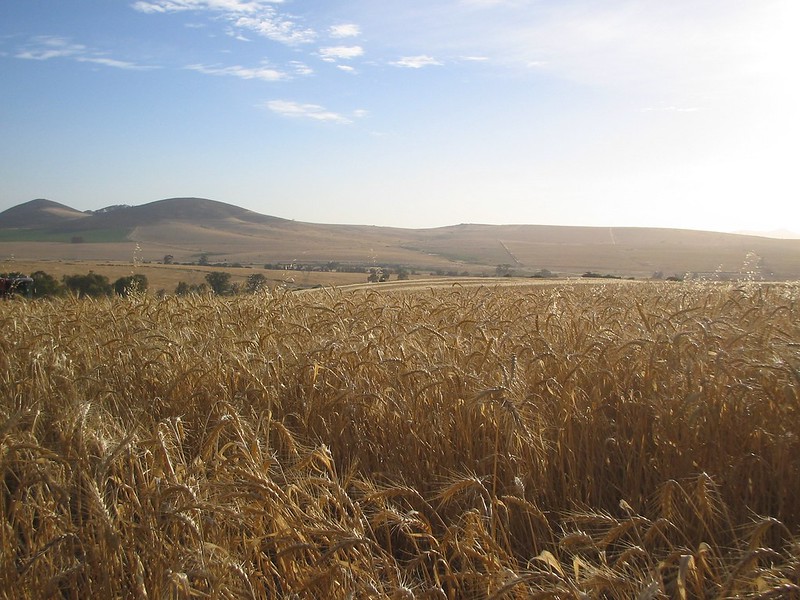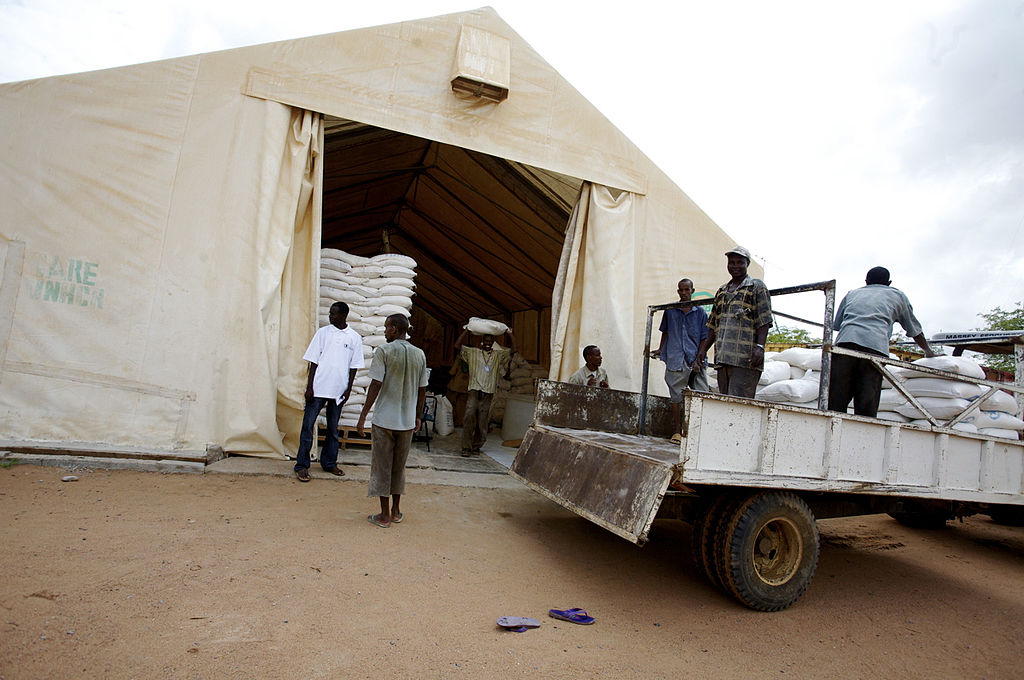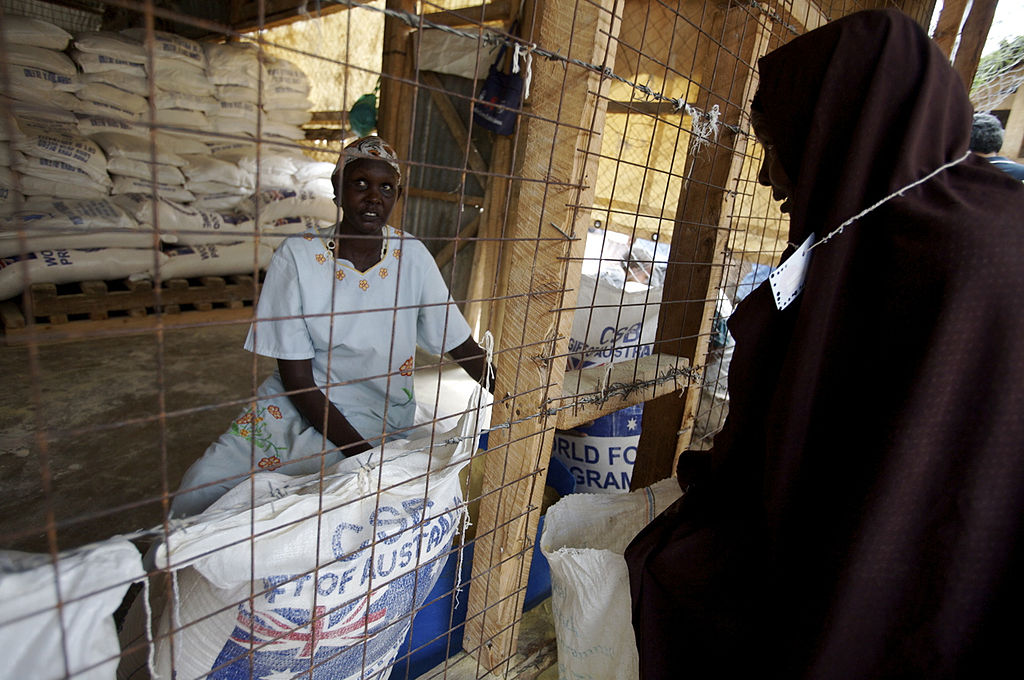The President of the African Development Bank Group, Akinwumi Adesina, warns: "Africa must prepare for the inevitability of a global food crisis. He was speaking on Africa's priorities as a guest of the Atlantic Council's Africa Center.
Responding to questions from the President of the Africa Center, Ambassador Rama Yade, Aubrey Hruby, senior member of the center, and the press, the President of the Bank called for a strong awareness of the urgency in the face of what he called an exceptional convergence of global challenges for Africa, occurring only once in a century.
According to Adesina, the most vulnerable countries on the continent have been hardest hit by conflict, climate change and the Covid-19 pandemic, which have wiped out much economic and social progress in Africa. He added that Africa, which has the lowest GDP growth rates, has lost up to 30 million jobs due to the pandemic.
On the impact of the war between Russia and Ukraine, Adesina expressed sympathy for the Ukrainian people, describing their suffering as unimaginable. He said the impacts of the war extend far beyond Ukraine, to other parts of the world, including Africa.
He recalled that Russia and Ukraine provide 30% of world wheat exports, the price of which has practically increased by 50% at world level, reaching almost the same level as during the world food crisis of 2008. He added fertilizer prices had tripled and energy prices had risen, fueling inflation.
Adesina warned that tripling the cost of fertilizers, soaring energy prices and exploding food basket prices could worsen in Africa in the coming months. He noted that 90% of Russia’s $4 billion in exports to Africa in 2020 was wheat; and that 48% of Ukraine’s approximately $3 billion in exports to the continent were wheat and 31% corn.
Adesina stressed that to avoid a food crisis, Africa must rapidly increase its food production. “The African Development Bank is already working to mitigate the effects of this food crisis through the African Food Crisis Response and Emergency Facility, a specific mechanism that the Bank intends to put in place. place to provide African countries with the resources they need to increase local food production and procure fertilizers,” he revealed.
“My principle is simple: Africa should not beg. We have to solve our own challenges ourselves without depending on others… ,” said Adesina. The President of the Bank thus spoke of the first successes obtained thanks to an innovative initiative of the Bank, the flagship program Technologies for the transformation of African agriculture (TAAT, from its English acronym), covering 9 food chains in more than 30 African countries.

Adesina said the TAAT program has helped to rapidly increase food production on the continent, including the production of wheat, rice and other cereal crops. “We walk the talk. We produce more and more of the food we eat. Our African Food Crisis Response and Emergency Facility will produce 38 million tons of food,” he estimated. He revealed that TAAT has already supplied heat-tolerant wheat varieties to 1.8 million farmers in seven countries, which has increased wheat production by more than 1.4 million tonnes, for worth $291 million.
According to Adesina, heat-tolerant varieties are now being planted on hundreds of thousands of hectares in Ethiopia and Sudan, with extraordinary results. In Ethiopia, where the government has rolled out TAAT as part of a 200,000 hectare lowland irrigated wheat program, farmers are reporting yields per hectare increased 4.5 to 5 times. He said TAAT’s climate-resistant seeds are also thriving in Sudan, which recorded the largest wheat harvest in its history — 1.1 million tonnes of wheat — in the 2019-20 season.
He added that TAAT came to the rescue during drought in southern Africa in 2018 and 2019, deploying heat-tolerant maize varieties grown by 5.2 million households on 841,000 hectares. As a result, he said, farmers survived drought in Zimbabwe, Malawi and Zambia, allowing maize production to increase by 631,000 tons worth $107 million.
Adesina spoke of the urgent and timely need for a strong replenishment of resources from the African Development Fund, the Bank Group’s concessional window that supports low-income African countries. He indicated that the Fund has made it possible to connect 15.5 million people to electricity and to help 74 million people to improve their agriculture; it has enabled 50 million people to access transport; it has made it possible to build 8,700 kilometers of roads; and connected 42 million people to improved water and sanitation facilities.

The President of the Bank considered that there are three lessons for Africa to learn from the challenges it currently faces: first, the continent can no longer leave the health security of its people to the benevolence of others; second, it must look at investments in health differently and make the development of a health defense system a priority — by investing in quality health infrastructure —; and third, economies—which are already recovering—must create the fiscal conditions to deal with debt challenges.
Asked about his prognosis of the outcome for Africa of the world climate summit, COP26, held in Glasgow last November, and his prospects for success at COP27 to be held in Sharm el-Sheikh, Egypt, in 2022, Adesina was optimistic. He said it was important for developed countries to keep their promise to provide Africa with the $100 billion a year needed for climate adaptation. Adesina analyzed: “Our challenge is adaptation, because we did not cause the problem. In Africa, we are adapting to climate change. »
He explained that the African Development Bank, with its partner the Global Center for Adaptation, was mobilizing $25 billion to support climate adaptation in Africa.
The President of the African Development Bank also spoke of the importance of the emergence of the technology sector as an outlet for African youth and an engine of growth for the continent. Adesina described Africa’s youth as one of its greatest assets. He praised the contributions of young entrepreneurs in the fintech, digital, creative arts and entertainment sectors.
He explained that the need for innovative financing desired by young entrepreneurs is why the Bank is exploring with other stakeholders the creation of investment banks specializing in youth entrepreneurship to unlock the potential and Economic Growth.





























Réagissez à cet article